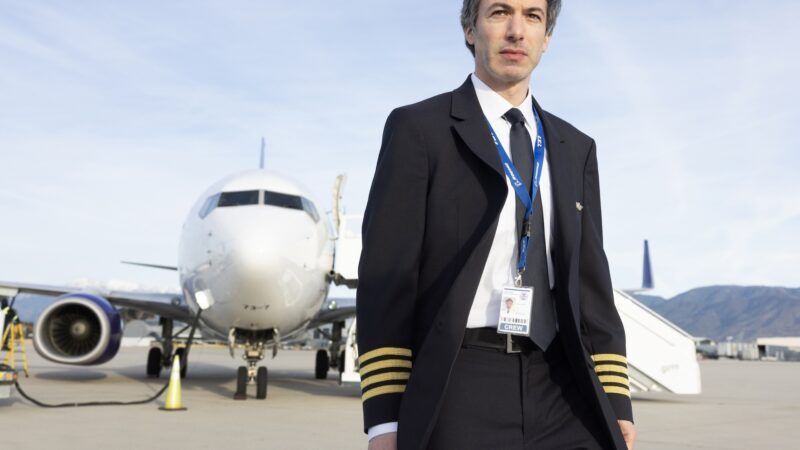Nathan Fielder's 737 Stunt Involved Elaborate Workaround of Ridiculous 1,500-Hour Rule
In order to perform his famous 737 stunt, Fielder had to navigate around flight-hour requirements that critics say don't improve safety but do cause a shortage of pilots.

In the season finale of the HBO show The Rehearsal, comedian Nathan Fielder flew a fully loaded Boeing 737 to test his novel idea that fatal plane crashes could be prevented by creating better interpersonal communication between pilots and first officers.
In keeping with the show's premise, Fielder wanted to make his dry-run test as close to a real-life commercial airliner flight as possible—complete with a cabin full of passengers.
This naturally required Fielder to obtain a commercial pilot's license and buy (with HBO's money) a 737.
Neither is particularly easy, but it is relatively straightforward from a legal perspective. Flying with passengers, however, required Fielder to engage in an elaborate workaround of federal regulations that were, ironically enough, adopted as the last bright idea to prevent plane crashes.
Following the Colgan Air disaster in 2009, when a commercial airliner crashed in New York, killing 50 people, Congress passed legislation requiring that pilots have 1,500 hours of flight time before qualifying for the Air Transport Pilot license. The previous requirement had been 250 hours.
As detailed in the show, this created a problem for Fielder, who, in the run-up to the filming of his first 737 flight, had only accumulated a few hundred hours of flight time.
To get around this hurdle, Fielder exploited a loophole in the law that allowed him to carry hired actors posing as paying customers.
People can argue about whether Fielder's theory of plane crashes, and his proposed fix of having pilots and co-pilots act out a brief scene of them bluntly confronting each other before flights, will actually improve aviation safety.
Rep. Steven Cohen (D–Tenn.), the ranking member of the House's Transportation Subcommittee on Aviation, was hilariously uninterested in the idea during his meeting with Fielder earlier in the season.
In a recent Wall Street Journal article, pilots' and aviation experts' assessment of Fielder's idea ranged from minimally supportive to openly disdainful. Many people interviewed by the Journal stressed that pilots already do a lot of role-playing and situational training to improve in-flight communication.
What can be said for Fielder's idea is that it would be at least as effective as the 1,500-hour rule (which is to say, not at all) and much less costly.
No other country in the world requires airline pilots to rack up as much flight time as the U.S. currently does.
Neither the Federal Aviation Administration (which regulates aviation safety) nor the National Transportation Safety Board (which investigates crashes) has found any relationship between the 1,500-hour rule and improved safety.
(The two pilots in the Colgan disaster notably had over 1,500 hours of experience each.)
Critics charge that the 1,500-hour rule reduces safety by forcing pilots to spend endless hours performing routine flights at the expense of time spent training in more productive simulators.
Regional airlines complain that it's made recruiting pilots much more difficult, leading to a shortage of pilots and reduced regional airline service.
Nevertheless, efforts to reform the 1,500-hour rule have run into concerted opposition from the country's main pilots' union, the Air Line Pilots Association (ALPA), and their Democratic allies in Congress. President Donald Trump's pending nominee for head of the FAA, Bryan Bedford, has proven exceptionally controversial because of his own pushback against the regulation.
Gary Leff, who writes the View From the Wing blog, suggests crass self-interest motivates ALPA's support for the 1,500-hour rule. The regulation makes it harder to become a pilot and, therefore, helps push up pilots' wages.
ALPA has been sharply critical of Fiedler's own proposed safety improvements, saying in a statement to the Journal that crew communications training is "built on decades of research, training, and real-world experience—not fictional TV shows or comedy routines."
As off-the-wall as Fielder's idea might be, it's not inherently more ridiculous than the ineffective hours regulation that ALPA has spent so much time defending.
Rent Free is a weekly newsletter from Christian Britschgi on urbanism and the fight for less regulation, more housing, more property rights, and more freedom in America's cities.


Show Comments (17)